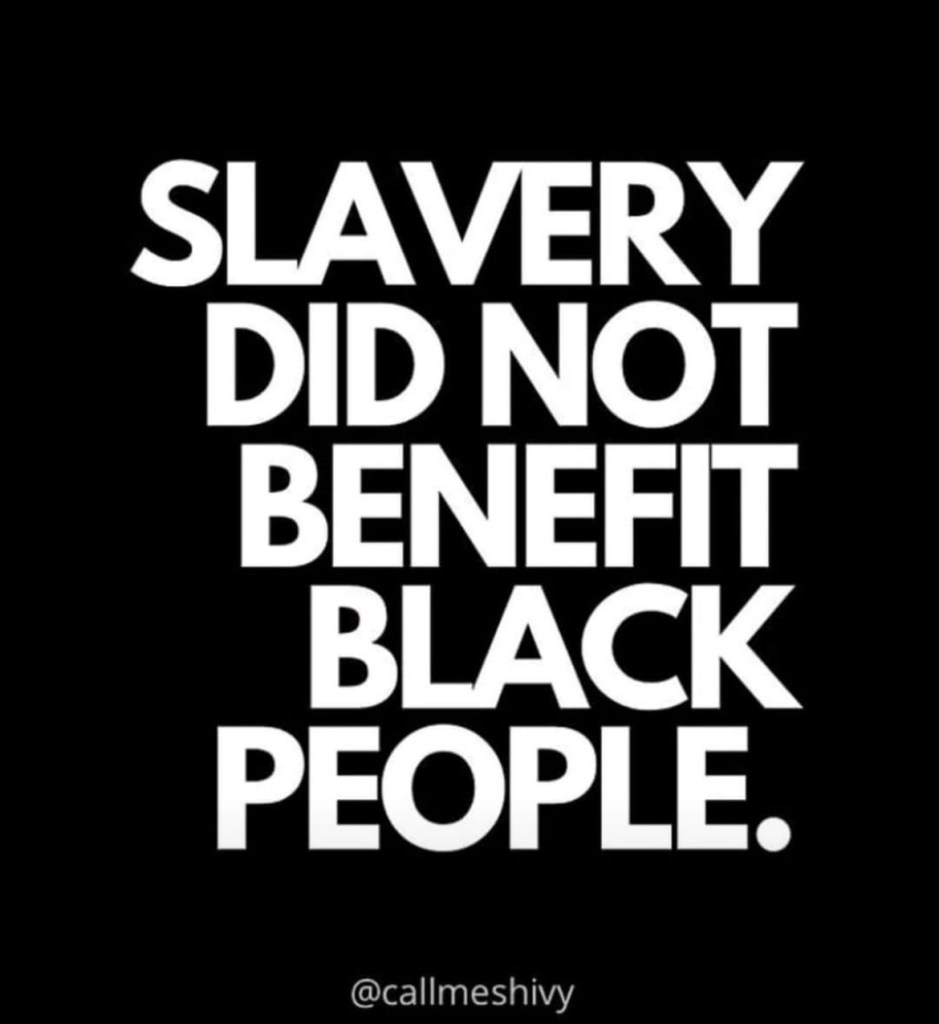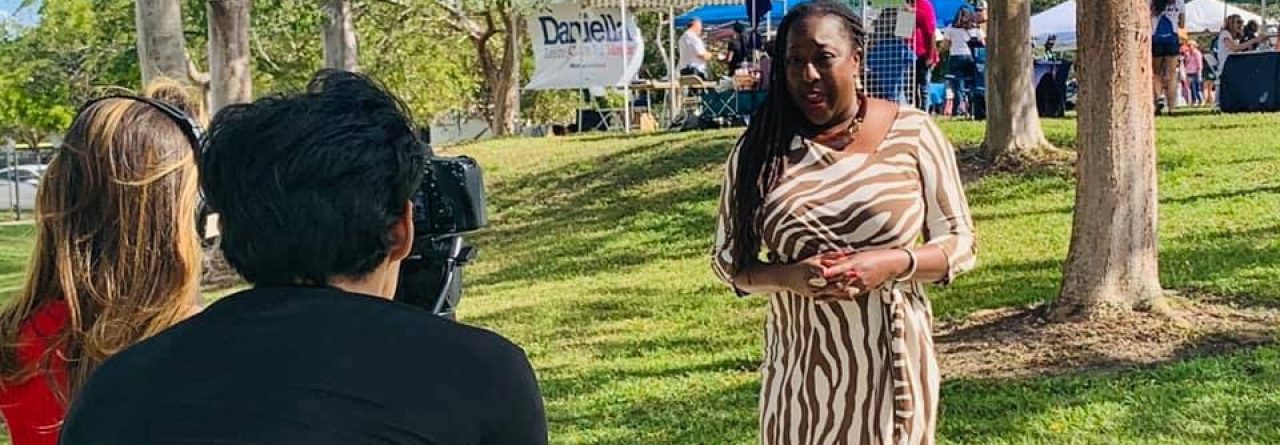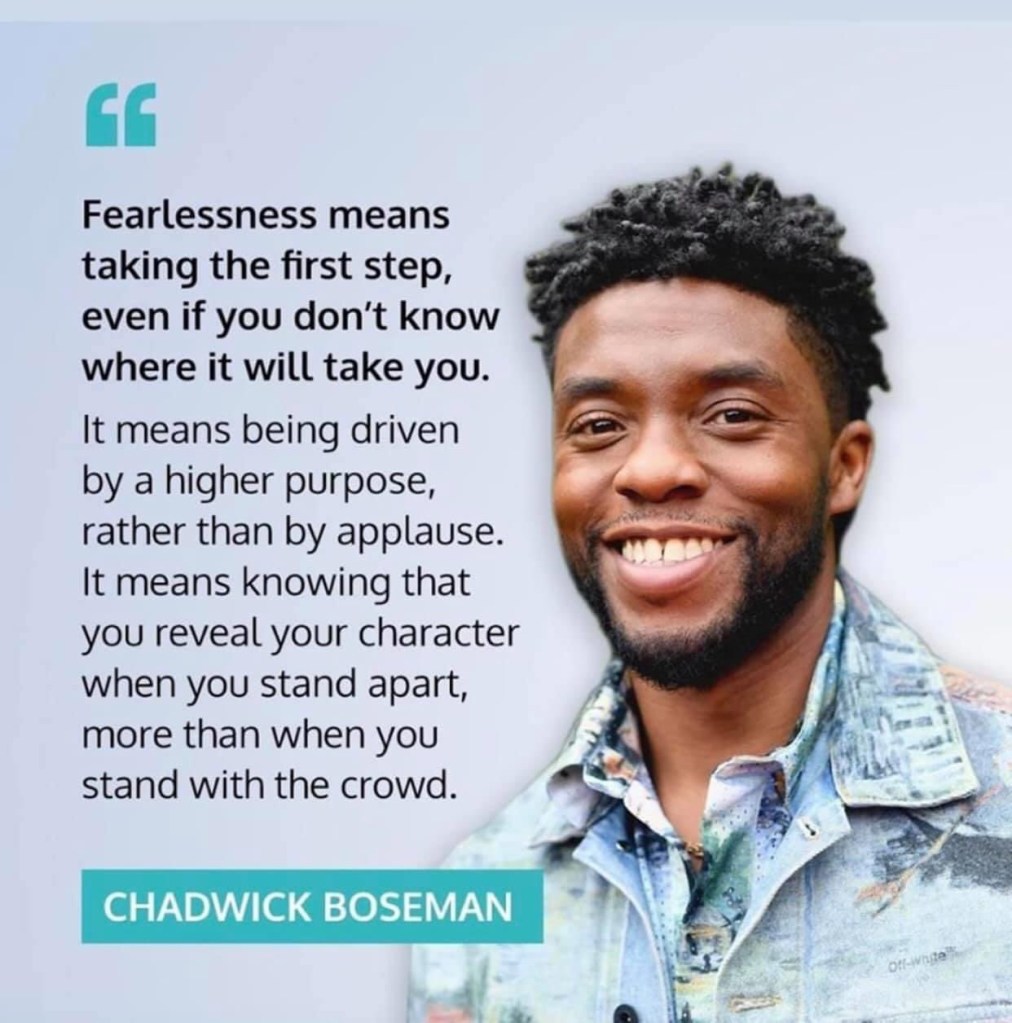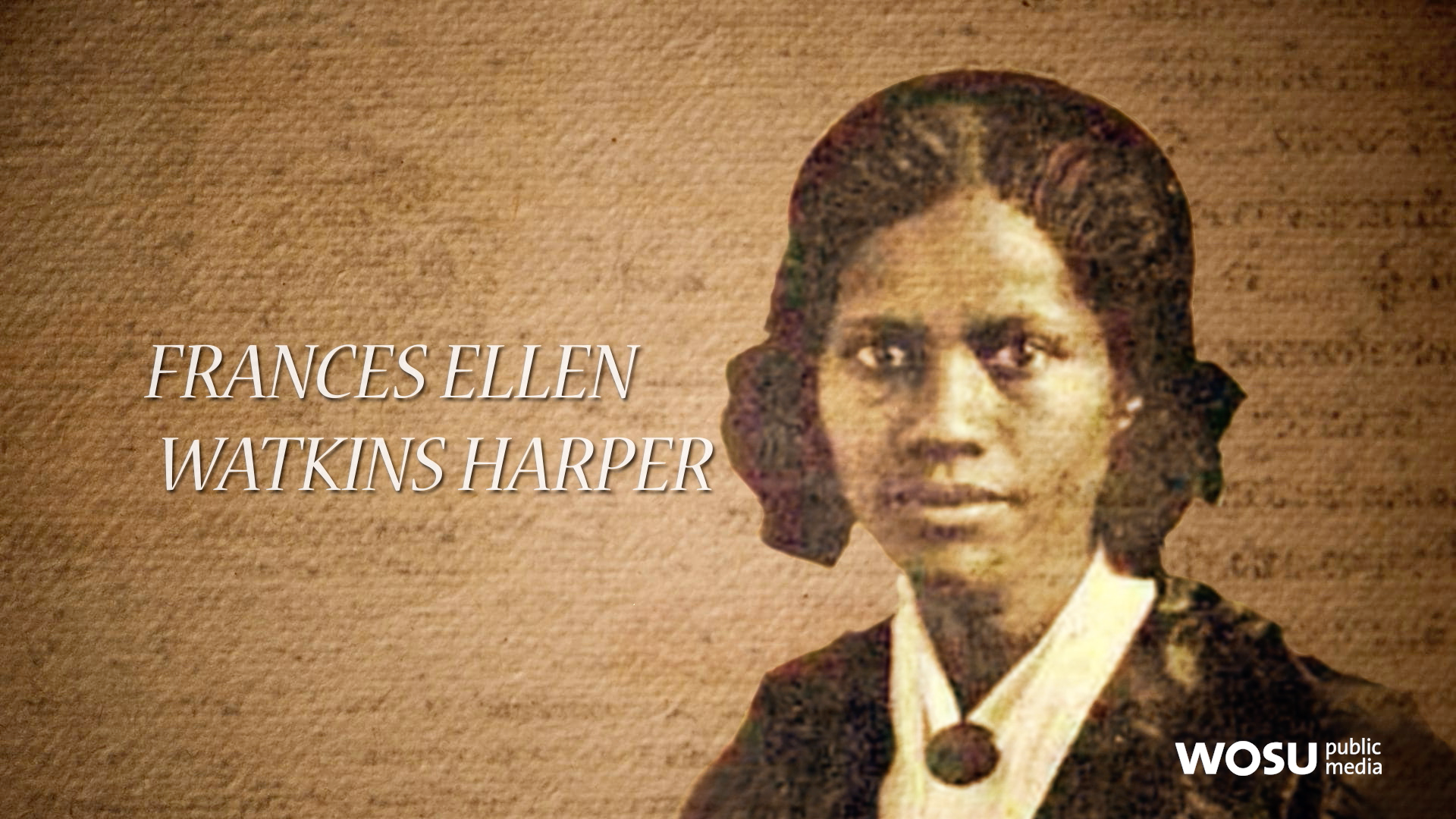Greetings Everyone!
It’s been a long time since the last newsletter — this is actually the first one for 2023! The end of 2022/first half of 2023 was hectic personally and professionally. My dad had a few health issues but is doing great now, thankfully.
2023 started calm, and quickly moved to fast and furious. I’ve become the Legal Redress chair for NAACP South Dade Branch to help with discrimination complaints in the south end of the county. My day job has me crisscrossing the country working with prosecutors offices on using data for transparency and community engagement. We have lots of exciting aspects that will come to fruition soon so stay tuned! It was great chatting with NPR in Wisconsin about the struggles prosecutor’s offices are facing in terms of hiring and retention.

But, back to politics. Legislative session was brutal in Florida, and the avalanche of bad bills began on Day 1. Abortion access was at the top of the list, with a 6 week abortion ban that became law. Last year, a 15 week abortion ban passed, but it is still held up in the courts due to multiple lawsuits. Why the legislature thought it was a good idea to push even further while the 15 week isn’t even settled law speaks to how it’s more about optics vs what is is legal/constitutional; multiple lawsuits continue to wind its way through the courts. But the consequences are already being felt. Please see the tragic story of Anya Cook who nearly lost her life due to complications with her pregnancy after being denied a medically necessary abortion.
Next on the list is an all out assault on education. HB 999 was a bill that is so long and broad — and incredibly vague, which will also lead to litigation. Some of the impacts of the new law include removing diversity, equity and inclusion programs from public universities; giving political appointees (university boards of trustees) more power over hiring and firing tenured professors (vs just the people who actually supervise them daily); and forbid diverse student groups intended to support students as they integrate into university life. This, along with a expansion of the law referred to as “Don’t Say Gay 2.0″, and the blatant attacks on drag shows, has gotten to a point of sheer lunacy. In positive news, one court has ruled the law affecting drag shows was unconstitutional. Florida Representative Ashley Gantt shared a great recap of what occurred this session. The fallout continues as a lax procedure under the guise of “anti-woke/anti – CRT” – which is not taught outside of the college and law school level – has arisen allowing just one parent to challenge a book at a school, and get it removed. This resulted in Amanda Gorman’s poem for the inauguration of President Biden, “The Hills We Climb”, being removed from a Miami school. This is sickening and harmful to our students.

The battle is being waged by students and faculty — I was really proud of the young people, especially from the LGBTQ+ community who have been raising their voices in Tallahassee to fight for health care, teaching of accurate history and prevent their erasure from discussions.

As per usual, Spring break in South Beach devolved into chaos like clockwork on the 3rd weekend of March — like it does every year. Despite advocates, residents and party planners pitching effective ideas that could prevent the violence every year — every year, the Commission and the Mayor refuse to do anything, let things fall apart, then rely on a heavy police presence. As I said in interviews to CBS as well as on TikTok — this is preventable with planning. Don’t believe me? Ask the king of the party himself, Luther “Uncle Luke” Campbell” who submitted a detailed plan on how to address this — and it sat on a shelf.

In historic legal news, the former president has been indicted in New York and Florida. I commented on the reckless rhetoric that he uses which has resulted in death threats to District Attorney Alvin Bragg, Fulton County (Atlanta) District Attorney Fani Willis, and Attorney Leticia James for their investigations. What folks forget in Manhattan is that two prosecutors quit because they thought DA Bragg should have gotten an indictment sooner. DA Bragg took his time which is what you’re supposed to do – not rush to judgement. The Florida case regarding classified documents appears to be on a fast track – we will see what happens.
On July 1, permitless carry is now the law in Florida – and no side was particularly thrilled. Gun rights advocates see it as problematic due to reduced education requirements and a preference for open carry; gun control advocates see this as reckless and that it will lead to more deaths. To be clear, from a legal perspective, reasonable restrictions on our constitutional rights are permissible – just like how you can’t yell fire in a crowded theater despite the 1st Amendment right to free speech. So what’s a reasonable restriction that protects our kids and balances 2nd Amendment rights? Arming teachers isn’t it. We have a massive teacher shortfall in Florida, and this is not a marketing tool to recruit more teachers to come to Florida. We had assault weapon ban that expired under President Bush, and school shootings rose steadily since then using AR-15s. Is that the issue?
I just can’t accept throwing up our hands and saying “criminals will be criminals” – which I’ve heard from a number of people. If an elected official said that about any other crime, there’d be calls for removal. As a gun owner, a former prosecutor and a supporter of civil rights/liberties, I grapple with this answer. Please check out my #MondaysWithMelba with a Tooka Hart, a licensed firearm instructor and founder of Black Girls Shoot, and share your thoughts on this issue!

ICYMI:
#MondaysWithMelba is still going strong! You can tune in every Monday at 6pm via Facebook, YouTube, LinkedIn or wherever you get your podcasts. Recent episodes include:
- The myriad of problematic education bills with educator and advocate Tanika Bennett.
- Mahlia Linquist, Executive Director of LEAP for Ladies who works with women coming home from prison.
- Author Liz Leiba shared her amazing book “I’m Not Yelling: A Black Woman’s Guide to Navigating the Workplace”.
- Author and Advocate Cassandra McCray released “4393: From a Ride to His Will” about the story of Leroy “Plump” Rogers and his 30 year fight for freedom.
- Former Senator Dwight Bullard shared the history of Juneteenth and why it is so important to our history as a country.
- Immigration attorney Tremaine Hemans breaks down the new immigration law in Florida, the end of Title 42 and what this means for those seeking a new life in the United States.
- My interview on CBS Miami on the importance of student loan forgiveness, especially in the retention of prosecutors.
You can also read my latest in the Miami Times on the Supreme Court’s gutting of affirmative action.
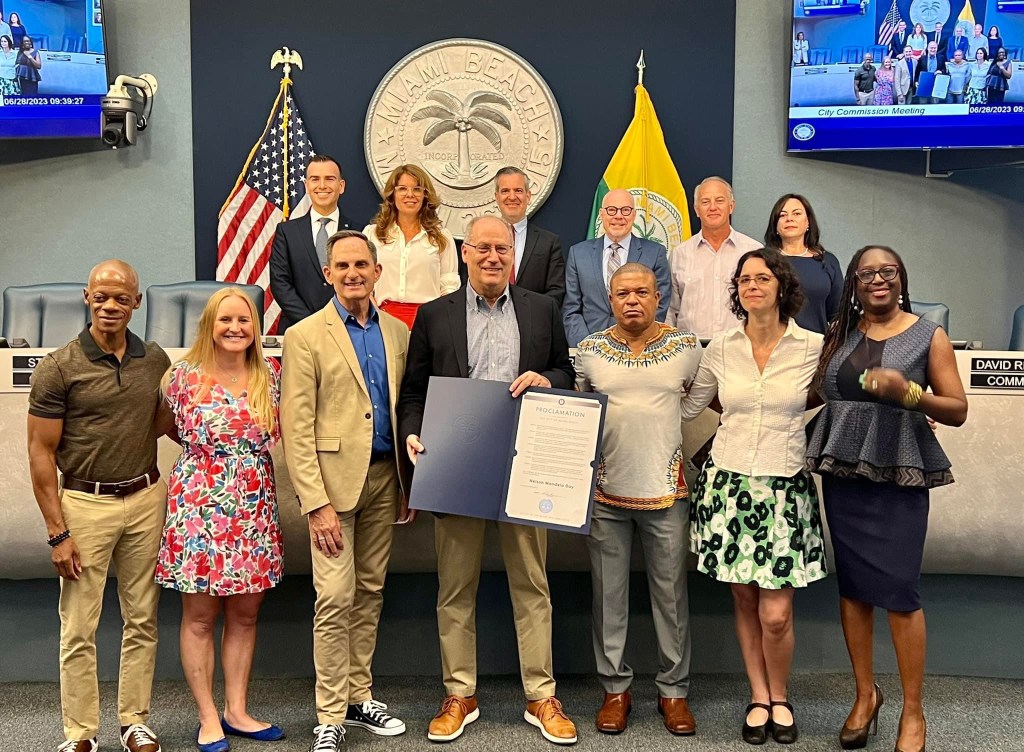
Call to Action:
- Read a banned book. There’s no such thing as too much knowledge. A great list is here.
- Renew your vote by mail ballot — all VBM applications expired in December of 2022
- Buy Liz Leiba’s book here and Cassandra McCray’s book here — all proceeds from Cassandra’s book will go towards retaining an attorney to assist in this case.
- If you live in Florida, sign the petition to get abortion on the ballot! More than 60% of Floridians support abortion access; let’s have the voters dictate what is best for our community.
- We have our own version of disgraced NY Member of Congress Rep. George Santos in Florida State Rep. Fabian Basabe. He has lied repeatedly, voted against our communities, and is currently being sued for sexual harassment by former staffers – including unwanted touching. Please sign the petition for him to resign the Florida House of Representatives and stop embarrassing himself.
- Support the family of AJ Owens – She was a Black mother in Ocala who was murdered by her white neighbor after the neighbor subjected her kids to a racist tirade and threw roller skates at them. The defendant shot her through a closed front door, killing AJ in front of her 9 year old son, and is claiming stand your ground – despite AJ being clearly unarmed and ringing the doorbell. Please donate to the GoFundMe for her children, share awareness about the case, and stay in the loop on how to fight stand your ground laws.

Photo credit: Carl Juste/Miami Herald
In Solidarity,
M.
